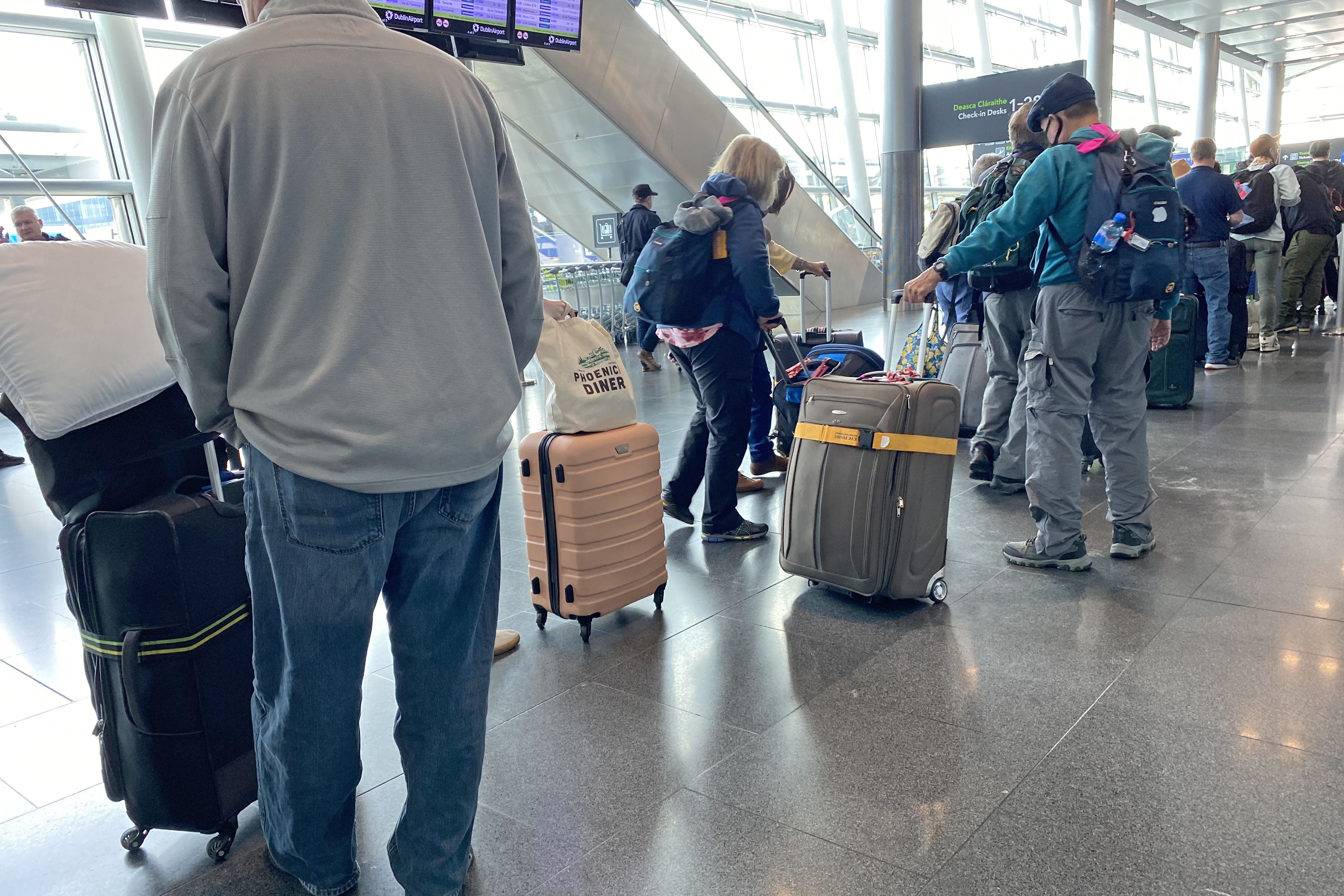Millions hit roads in Easter getaway as strong winds cause disruption to ferries
UK airports are braced for more than two million British holidaymakers over the Easter weekend.

Around 2.6 million car journeys are expected to be made on Good Friday, as strong winds from the Spanish-named Storm Nelson hit the start of the Easter getaway.
Ferry company DFDS reported that its services at Dover were running with delays “due to strong winds in the Channel” on Thursday as the long weekend got under way, with two million British holidaymakers also set to jet abroad.
Storm Nelson arrived with gusts of 50mph expected quite widely, according to a Met Office yellow weather warning for wind covering London and the South East, the South West and east of England which runs throughout Friday.
Great Western Railways closed a number of lines on Thursday due to flooding. All lines between Westbury and Swindon were shut and the main line from Paddington to Bristol Temple Meads was also closed.
Travel trade organisation Abta said airports are reporting “strong numbers”, with 175,000 due to leave from Stansted, 105,000 from Luton, 160,000 from Manchester, 79,000 from Birmingham, and 89,000 from Edinburgh between Friday and Monday.
Good Friday is set to be a day of sunshine and blustery scattered showers, coming after unsettled conditions which have seen hailstones hit parts of Cornwall.
The Met Office yellow weather warning for wind suggests that some exposed coastal spots may experience gusts of 60 to 70mph, with large waves also likely.
It adds: “The strong winds will be accompanied by heavy, squally showers with the possibility of hail and thunder in some locations. Hail won’t fall everywhere but where it does it can quickly make road surfaces slippery, while surface water and spray are likely to worsen travel conditions rather more widely. ”
A Met Office yellow weather warning for rain in parts of Northern Ireland runs to the early hours of Friday.
It states: “Accumulations of 15-25mm expected widely. Some places are likely to see 25-30mm, locally in excess of 40mm, especially across the Antrim hills.”
Elsewhere, in any sunshine it could feel warm, with highs of 14C expected in the south east of England but there is the risk of the odd thunderstorm, the Met Office said.
The driest weather is expected in the far north east of the UK and there could be a windy start to the day in many regions.
Deputy chief meteorologist Dan Harris said: “The weather is expected to gradually improve following the widely unsettled spell of the past few days, with a fairly typical mix of spring-like weather across the UK.
“There will be some sunshine, and it will feel increasingly warm for most as the winds become lighter.
“However, the west and especially south west is likely to see passing showers too, which could be quite heavy and frequent at times.
“Eastern coastal districts are also likely to feel increasingly cold as an onshore breeze develops, threatening persistent low cloud in some areas too.”
The RAC and transport analysis company Inrix commissioned a survey which suggested 2.6 million leisure journeys by car will be made on Good Friday.
The lengthiest delays are expected to be between 11am and 3pm, meaning drivers are advised to set off as early as possible or wait until later in the afternoon.
Two popular routes for holidaymakers – the M5 southbound between Bristol and Taunton, and the M3 between the M25 and the south coast – are likely to be congested.
Turkey, Dubai and the Canary Islands are among the most popular destinations abroad and trips to Dublin are also in demand.
Manchester Airport managing director Chris Woodroofe said: “It’s exciting that record numbers of people will be taking off from here this Easter: 320,000 people will travel (through the airport) over the bank holiday weekend – that’s up 7% on April 2023.”
Glasgow predicts more than 90,000 passengers over the four days while Birmingham Airport said it expects a 27.2% increase in departures compared to last year over the full Easter period.
Bristol, which predicts 30,000 holiday trips on Easter Sunday alone, advised: “If travelling with Easter eggs, passengers are advised to keep any chocolate treats in your cabin baggage and to make sure they’re easily accessible as they may need to be opened for a quick check.”
Liverpool Airport expects around 60,000 passengers over the four days, which is around 7% higher than last year.
Meanwhile, around 20,000 cars are expected to travel through the Port of Dover between Thursday and Easter Monday.
Ferry firm Stena Line said bookings on Irish Sea routes are up 115% on an average weekend at this time of year and have increased by 26% on Easter weekend 2023.
Network Rail urged train passengers to check their journey details before they travel because some major routes will be closed due to engineering work.
The West Coast Main Line between London Euston and Milton Keynes will be shut for four days from Good Friday.
There will also be disruption in the areas around Glasgow and Huddersfield.
Tourist board VisitEngland said around 11 million people in the UK are planning an overnight Easter trip, generating an estimated £3.2 billion for the economy.
Bookmark popover
Removed from bookmarks